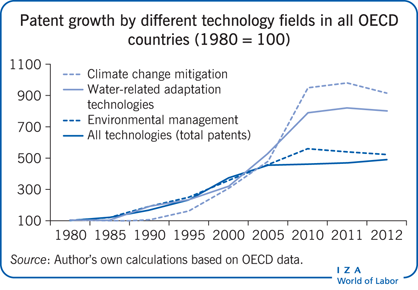Elevator pitch
New environmental technologies (environmental/eco-innovations) are often regarded as potential job creators—in addition to their positive effects on the environment. Environmental regulation may induce innovations that are accompanied by positive growth and employment effects. Recent empirical analyses show that the introduction of cleaner process innovations, rather than product-based ones, may also lead to higher employment. The rationale is that cleaner technologies lead to cost savings, which help to improve the competitiveness of firms, thereby inducing positive effects on demand.

Key findings
Pros
Environmental regulation can help firms to overcome informational, organizational, and coordination-related problems, leading to more eco-innovation activities.
Regulation-induced environmental process innovations can improve competitiveness and increase demand, which may lead to more employment.
Many environmental technologies are economically benign because they help reduce material and energy expenditures.
Environmental product innovations may lead to first-mover advantages for the respective firms.
Cons
End-of-pipe technologies, such as additional filters or sewage works, may reduce employment due to higher production costs.
Empirical evidence suggests that net employment effects of environmental and energy policies are small; therefore, environmental policy is definitely not a major vehicle to trigger employment.
Regulation-induced eco-innovation may lead to a crowding out of other innovation activities, thus reducing employment in the affected fields.